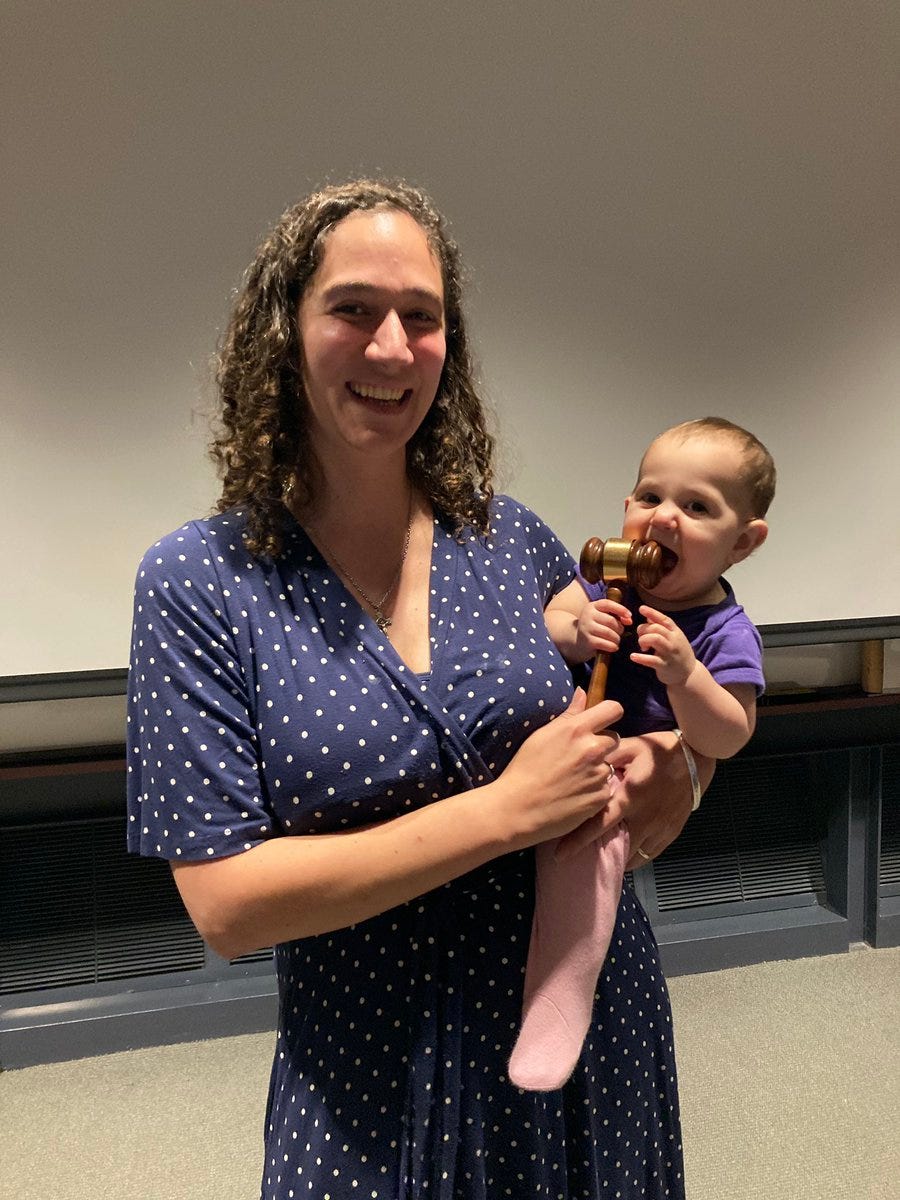A Good Fight About Abortion
A triptych of essays on conflict
I write Other Feminisms during my daughters naps’ and after their bedtimes. By day, I work at Braver Angels on the Debates and Public Discourse team. That means I get to help run national debates over zoom and in-person debates on college campuses.
It was my pleasure to write about an abortion debate I chaired at UNC-Chapel Hill as part of Plough’s “Enemies” issue.
Since the group was struggling to get pro-lifers on their planning committee, we pivoted to consider resolutions that would help speakers explore conflicting values within a pro-choice-leaning group. After some discussion, the group settled on “Resolved: Abortion is justifiable on the basis of expected disability.”
The first speakers were arranged in advance, but there seemed to be one speech made in silence, before the debate formally began. As the chairs were scraped across the floor and rearranged, there was suddenly a still point in the general scuffle. A blind student had entered, one hand on his cane, the other on a classmate’s arm. We cleared a space for him near a gap in the ring, and one student crossed the room to check if he needed anything. Was it helpful to offer a verbal description of the space in which, shortly, we would debate whether his parents should have been able to judge whether it was a mistake to let him occupy space at all?
The students did an excellent job asking and answering difficult, good faith questions of each other. Our goal at Braver Angels is sparking fruitful conflict, and the students lived up to that expectation.
I also got to review a book I really enjoyed for Deseret. Jennifer Pahlka’s Recoding America: Why Government Is Failing in the Digital Age and How We Can Do Better is a detailed, vivid portrait of how and why policymaking breaks at the implementation step.
In one particularly ridiculous example, Pahlka recounts assisting the Veterans Administration with the Veterans Benefit Management System, which was so laggy as to be borderline unusable. But one of the VA leaders maintained they had no latency problem — latency is formally defined as taking two minutes to load a webpage — and that technically, they were under that time frame.
His obtuseness was a kind of learned helplessness. She pressed him about the way he applied the rules past the point of common sense, and he explained, “I’ve spent my entire career training my team not to have an opinion on business requirements. If they ask us to build a concrete boat, we’ll build a concrete boat.”
[…] A big part of the problem is that agency employees are accountable to everyone except the citizens they’re intended to serve. The vendors hold them to the letter of the byzantine contract, and Congress and the Government Accountability Office, lacking the context to supervise them well, hold them to detailed, barely relevant administrative requirements. Long-serving members of the civil service slowly have both their curiosity and their zeal to genuinely solve problems beaten out of them. It’s not worth gathering data on a problem if no one will let you try to fix it. As Pahlka summarizes, “Data is not a tool in their hands. It’s something other people use as a stick to beat them with.”
Finally, here’s my favorite thing I’ve read recently: a long double profile of Chris Evert and Martina Navratilova’s relationship of more than fifty years. They’ve been tennis rivals, close friends, and finally cancer confidantes.
The profile reminded me of Elena Ferrante, in being a story of intense female ambition and intense female friendship simultaneously.



Hey now, there's nothing wrong with building a concrete boat! If you do it well it can provide valuable learning experiences, a national conference trip, AND bragging rights ;-) https://www.asce.org/communities/student-members/conferences/asce-concrete-canoe-competition
All joking aside, I'm adding Pahlka's book to my library holds list. That statement about data being used as a stick to beat people with reminds me of the Ani DiFranco lyric - "Every tool is a weapon / if you hold it right."
Your article about the abortion debate was fascinating! I read it twice. Thank you.